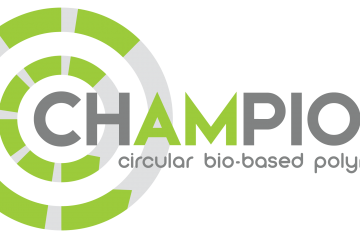Benchmarking sustainability certification systems for biofuels
Market demand for certified biomass and biofuels of consistent quality is increasing. But which system of certification suits the market players best? A mushrooming of national and voluntary sustainability certification systems has led to market confusion. Though appreciated, harmonization of initiatives has its limitations. Companies have the strong need to understand what the different systems have to offer, and how feasible it is for them to implement the chosen systems within their organisations.
To understand the various kinds of certification systems, their accompanying obligations, costs and their ability to guarantee the sustainability of the bioenergy purchased/sold, SQ Consult has developed two complementary benchmark studies which are unique in their kind. Together with the Comisión Nacional de Energía (National Commission of Energy from Spain), we have prepared a benchmark on EU national sustainability systems. We have also developed a benchmark on voluntary certification systems for NL Agency (the Netherlands). The most relevant outcomes are highlighted in this edition of our newsletter.
Bioenergy business and certification
Three years down the road from the publication of the European Renewable Energy Directive (EU-RED), there is no doubt in the market that sustainability is shaping the bioenergy business. Industries that are not able to adapt will disappear and opportunities are created for those industries and countries that do take the initiative and place themselves in forefront positions. (read our Summer 2010 newsletter: "A new era of the Bioenergy Industry: Sustainability criteria shaping the market"). This process is however not exempt from large uncertainties (read our winter and fall 2011 newsletters: "Roadmap to an organized global commodity market of bioenergy carriers", and “After international trade of biofuels, solid biomass flourishes. Same risks, same solutions”)
A key aspect for the further development and scale up of the bioenergy businesses is to implement adequate sustainability guarantee systems; this gives confidence to costumers, and allows for the implementation of supporting policies by governments. Proliferation of sustainability systems results in several questions from companies searching for the most suitable system for their sustainability obligations and their sustainability goals.
In the case of biofuels and other bioliquids, economic operators must prove compliance to sustainability criteria as a requirement for the supply of biofuels or bioliquids to EU national markets. Compliance must be proved by using either the national system (if it exists) or by using one of the voluntary certification systems recognised by the European Commission. National systems are recognised at EU Member State level, whereas voluntary systems are recognized at EU-level.
Companies show preference for voluntary systems because of their larger coverage and flexibility (voluntary systems can be used for other end-uses like for the food industry for example). Member States may wish to opt for also offering national systems in order to include their country-specific characteristics and/or to keep more control on the companies as well. Spain and Sweden are examples where country specific characteristics for pipeline and logistic systems exist.
The European Directive also allows for economic operators to refer to bilateral or multilateral agreements between the EU and non-EU states; however no such agreements are currently in place.
European Member States were required to fully transpose the EU-RED by 5 December 2010. However this process has not yet been completed by a number of Member States. Delays in transposition may not only jeopardize the achievement of the EU renewable energy objective, but these delays may also put those States in risk of being taken to the Union’s Court of Justice.
Until 22 March 2012, Finland, Greece, and Poland had not yet informed the European Commission of the full transposition of the Directive into their national legislation. Therefore, the Commission has decided on that date, to send Reasoned Opinions to these EU Member States. If the Member States do not comply with their legal obligation within two months, the Commission may decide to refer them to the Court of Justice.
Benchmark study on EU national systems: A comparative analysis
A full benchmark comparing the requisites, procedures and status of the sustainability systems in 10 European Member states have been developed by SQ Consult together with the Comisión Nacional de Energía (Spain). Countries studied are: Austria, Belgium, France, Italy, Germany, the Netherlands, Portugal, Spain, Sweden and the United Kingdom.
The Netherlands, Germany and Sweden, among others, have already fully implemented compliance to the Commission’s sustainability criteria for biofuels. It is expected that in 2013 the Commission’s sustainability criteria for biofuels will be fully enforced throughout the EU. This delay already causes some distortions in the EU biofuels market. Certified sustainable biofuels are in most cases more expensive than non-certified biofuels.
Countries such as France, Belgium, Portugal, Italy and Spain have recently published legislation implementing their national sustainability systems. Further regulations establishing details for these implementations are being discussed and elaborated in these countries. In other countries, such as Austria, legislation is still under the development. However, not every country has decided to establish a national system to supplement voluntary systems recognised by the European Commission. It is the case in the Netherlands and Denmark for example.
This benchmark discusses twelve different aspects for each country:
- Legal framework;
- Timeline for implementation;
- National institutions involved in the sustainability system;
- Sustainability criteria scope;
- Rules for double counting of biofuels;
- Superposition with voluntary systems;
- Group audits;
- Reporting requirements;
- Requisites for certification bodies;
- Characterization of the chain of custody;
- Level and frequency of verification;
- Transitional period
National highlights
- Austria: Legislation establishing the national system is still under discussion;
- Belgium: Adoption of CEN standard prEN16214 as national system. Feedstock cultivated in 2011 and 2012 does not need to prove compliance;
- France: System operational, but Administration Entity not yet designated. The Ministry of Economy administers temporarily the national system. Rules for compliance and double counting issued;
- Germany: Two sustainability Ordinances in full operation since January 2011; systems may operate on national level when recognised by the national government body BLE;
- Italy: Obligation to prove sustainability entered into force as per 1 January 2012. List of eligible feedstock for double counting is pending;
- The Netherlands: System fully operational since January 2012. Eight voluntary systems additional to voluntary systems recognised by the European Commission are approved until 1 July 2012;
- Portugal: Administration authority implemented. Reporting obligation has already started, though no sustainability information will be required during 2012. Verification of sustainability starts on 1 January 2013.
- Spain: National system established and further regulation is being developed. Sustainability compliance starts on 1 January 2013;
- Sweden: National system is operational. Since 1 January 2012 compliance to sustainability criteria is required to receive tax exemptions
- United Kingdom: The RTFO, operational since 2008, became RED compliant on 15 December 2011.
|
Few main outcomes
|
The full benchmark study (only available in Spanish) can be downloaded from:
Comparing national sustainability systems for biofuels
Benchmark study on voluntary systems: Selecting a biomass certification system. A benchmark for level of assurance, costs and benefits
What are the differences between voluntary certification systems: in terms of effectiveness, level of assurance, information requirements, expected cost levels and users' benefits? This information is essential for corporate decisions when making a choice to match the company’s specific needs and situation. SQ Consult has prepared a benchmark study for NL Agency's Programme for Sustainable Biomass. This study has as objective to assist companies with regard to the selection of biomass certification systems.
This benchmark discusses four different aspects of each certification system:
- Coverage of the system in terms of chain of custody, principles and criteria;
- Level of assurance;
- Costs of certification;
- Benefits of certification;
Guidance for eight voluntary certification systems
The outcomes of the benchmark study provide extensive background information on eight voluntary certification systems to help market parties to make their selection according to their specific sustainability goals and their supply chain characteristics. In all cases, with exception of REDcert, the EU versions of these systems were evaluated. The eight systems are:
- Bonsucro
- ISCC-EU
- NTA8080/81
- REDcert (only the German version, the EU-RED version was not available at the time of the study)
- Roundtable on Sustainable Biofuels (RSB)
- Roundtable on Sustainable Palm Oil (RSPO)
- Roundtable on Responsible Soy (RTRS)
- 2BSVS
Level of assurance
The key question is whether systems can sufficiently ensure sustainability. Subsequently, the systems were benchmarked in order to clearly show their differences and to indicate which perform better in areas related to the level of assurance. RSB scores highest on the stakeholder consultation; this aspect is completely absent under 2BSvs. RTRS scores for example very strong on sampling conditions, which is a relatively weak point under REDcert and 2BSvs.
Costs and benefits of certification
While on the one hand certification offers various benefits to the market, certification costs will also have an important impact on the total cost structure of sustainable biofuels and bioliquids – especially when it comes to the production of the feedstock. The study provides an indication of the benefits and costs of certification (distinguished by direct and indirect costs). When looking at the evaluated systems, it can be concluded that the most reliable certification systems are also the more expensive ones. Differences in direct costs are, however, relatively small between the evaluated systems – especially when placing this in perspective with the total production costs and volumes handled.
In the end, it is very important that companies carefully weigh the characteristics of a certification system against their supply chain characteristics and their sustainability goals. When selecting a certification system, a company will need to make a thorough assessment based on expected costs and benefits, on its own strategy, company structure and its position in the market.
|
Correlations found (based on reviews February 2012) Important correlations between certification costs, benefits to be gained from certification, and the level of assurance of voluntary certification systems, are found in these areas:
|
Factsheets certification systems
This benchmark study has also produced eight factsheets with extensive background information on the evaluated systems. All individual factsheets cover the following information:
- General information: Year of operation, EC recognition, national approvals, coverage of principles, type of organization, adherence and current number of certificates.
- Auditing requirements - working methods for auditors: Requirements for planning audits (planning, conducting audits, reporting), auditor assessment procedure before entering a system (risk analysis); sampling requirements; use of self-declaration; stakeholder consultation; auditing frequency; maintenance of certificate; requirements on missing information during the audit; handling major and minor non-conformities; communication of non-compliances or fraud; dispute resolution; limited assurance level and guidance for auditors.
- Quality requirements auditors: Rules regarding quality requirements for auditors, including their required skills, level of independency and other requirements.
- Control of the auditors: Control of certification bodies, requirements of accreditation or recognition of auditors.
- Description of the Chain of Custody: Chain coverage; used chain of custody system; possibility of less stringent requirements for residues or smallholders; recognition by and of other standards.
- Information handling: Requirements on the document management system, retaining data evidence, specification of time frame for mass balance, prevention of double counting, quality requirements on the information system, handling of certificates throughout the chain, information requirements for stakeholders in the value chain.
- Direct costs of the system annual fees; costs for non-member; fees per tonne biofuel or biomass
- References used
The full benchmark study can be downloaded from:
Selecting a biomass certification system
This newsletter is based on recent work conducted by SQ Consult; more information on these studies is available at request. The author thanks Sjors van Iersel, Jinke van Dam and Rosaria Chifari for their valuable contribution to writing this article.




